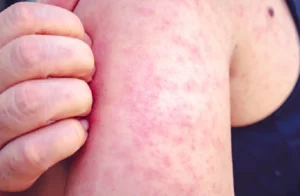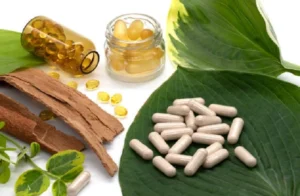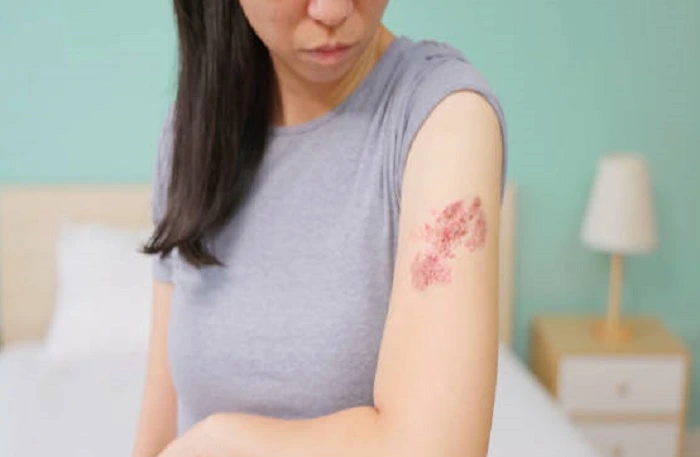People often get hives and eczema mixed up when they have skin problems. They can both be painful, annoying, and frustrating, but they are caused by different things and need different treatments.
If you’ve ever had red bumps or itching spots on your skin, hives vs eczema you might be confused about whether you have hives or eczema. For management to work well, these two factors must be understood.
This guide will tell you everything you need to know about the differences between hives and eczema, from what they are to what causes them. You’ll learn about the symptoms that make each condition unique and how doctors correctly identify each one.
We will also talk about the different kinds of treatments that are available as well as natural cures that may help. We’ll also give you helpful tips on how to avoid flare-ups in the future.
This thorough guide will give you the information and skills to deal with both Hives vs Eczema head-on, whether you’re looking for answers for yourself or a loved one who is having trouble with these conditions. Let’s look into these skin problems in more depth.
What are Hives and Eczema?

Skin bumps called hives, which are also called urticaria, often itch or burn. Depending on the size, they generally show up all of a sudden. Allergic or irritating substances cause these bumps, which usually go away in a few hours or days.
In contrast, eczema is a group of diseases that make skin red, itchy, and inflamed. With red spots that may ooze or get scaly, it’s usually a long-term problem. Asthma is common in kids, but anyone of any age can get it.
Although both conditions involve the skin’s reaction to triggers, they look very different and work in very different ways underground. Hives vs eczema For successful management and treatment plans that are tailored to each condition’s specific features, it is essential to understand these differences.
Causes of Hives and Eczema
Even though hives and eczema are both skin diseases, they are connected to different causes. Hurtful skin eruptions called hives and urticaria are usually caused by allergies. Some foods, medicines, and insect stings are common causes.
Eszema is more complicated. Multiple genetic and external factors have led to its development. Problems like soaps and fabrics that are irritating can make flare-ups worse.
The weather changes also affect both of these situations. Insanely dry air can make acne symptoms worse, and excessive humidity can make hives worse. Viral infections could also cause a spread of either disease. By understanding these reasons, you can find possible triggers for each case.
Symptoms and Differences between Hives and Eczema
Once you look closer, Hives vs Eczema may look alike, but they have different signs that make them different. Hive symptoms usually show up as red, itchy welts on the skin. You can find them in different sizes, and they often change form or move around over time.
In contrast, eczema usually shows up as red, itchy spots that are dry and flaky. Elbows, knees, and the face are popular places where it happens. Each disease causes itching, but hives itches very badly for short periods of time, while eczema hurts for a longer time.
Acne happens over time because of things like irritants or allergens, while hives can appear quickly because of an allergic reaction or stress. Realizing these differences is important for making accurate diagnoses and coming up with effective treatment plans that are suited to each disease.
Diagnosing Hives and Eczema

It can be easy to tell if someone has spots or eczema, but most of the time, you need to pay close attention. hives vs eczema A healthcare provider will usually start by asking a lot of questions about your health background.
The next important step is a physical checkup. Skin symptoms can help you tell the difference between these conditions. If you have hives, they generally look like raised bumps that can change shape or go away quickly.
Sometimes, more tests need to be done. If it seems likely that hives are caused by an allergen, allergy tests might be done. If someone has eczema, doctors may look to see if anyone in their family has had similar skin problems.
It can also help to make a correct diagnosis if you keep track of flare-ups and how they relate to your environment or food. The more details you give, the easier it is for professionals to figure out what to do next.
Treatment Options for Hives and Eczema
Hive treatments often include antihistamines. These medicines help lower inflammation and itching. To control inflammation in serious cases, corticosteroids may be given.
Treatment for eczema focuses on keeping the skin wet. Avoiding dryness is impossible without creams and lotions. Also, topical steroids can help ease flare-ups by lowering redness and itching. Avoiding stressors is very important in both situations. Identifying individual irritants or allergens helps a lot of people who are suffering.
Image therapy may be worth looking into for people with long-term illnesses. Exposure to ultraviolet light is controlled and medical care is needed.
Talking to a dermatologist can help you get treatments that are perfectly suited to your needs. Understanding that everyone’s experience is unique makes professional help essential for successfully managing symptoms.
Natural Remedies for Hives and Eczema

For both Hives vs Eczema, natural treatments can help. Many people use ingredients that make them feel better to help them deal with their problems. Aloe vera is often used because it cools the skin. Aloe gel can help soothe irritation and speed up the mending process when applied directly to the wound.
Baths with oatmeal are another choice. When mixed with warm water, colloidal oatmeal soothes and stops itching on the skin. Also, essential oils like tea tree oil or lavender oil may be helpful. Adding a carrier oil to these oils before using them can make them less irritating and give them a nice smell.
Also, drinking enough water helps keep skin fresh. Overall skin health is improved by drinking enough water throughout the day, which also makes skin more resistant to allergens. Herbal drinks, like chamomile, are also known to help calm people down. These might not only help you deal with stress, but they might also be good for your health in the long run.
Prevention Tips for Hives and Eczema
To stop spots and eczema, you must first know what makes them happen. Write down in a log any foods, places, or things that might make your symptoms worse. Being aware of this can help stop future breakouts. For both diseases, keeping the skin moist is very important. Regularly use creams without scent to keep the skin barrier strong.
People who get hives often may find that wearing loose clothes made of natural fibers helps reduce friction and sweating, which can be caused. With eczema, using light soaps and taking short showers will help keep the skin’s moisture levels up.
Managing your stress with relaxation methods like yoga or meditation can make it much less likely that you will have flare-ups for both conditions.
Conclusion
You need to know the difference between hives and eczema in order to treat them correctly. Hives vs Eczema Both skin diseases can make life very hard, but they are caused by different things and need to be treated in different ways.
Because they caught the signs early, got the right diagnosis, and looked into a number of treatment options, including natural remedies. You can get better with help. To cut down on flare-ups, it’s also very important to find ways to keep them from happening.
You can take charge of your health if you know more about it, whether you have pimples or hives. A doctor or nurse can help you deal with these issues, which will make it even easier.


